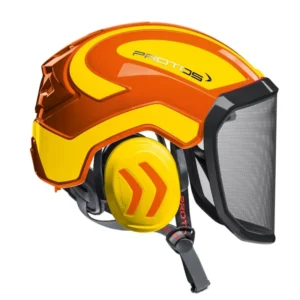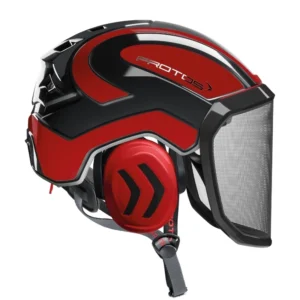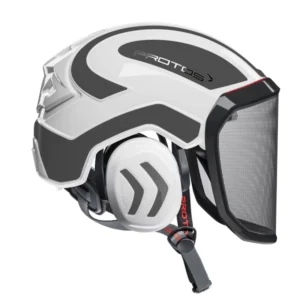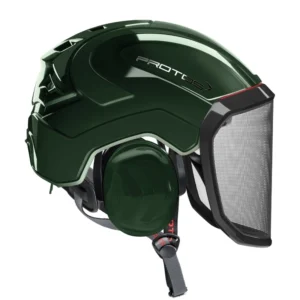Description
If you are looking for the most versatile, comfortable, and ergonomic helmet available, the Protos is the answer. The Protos arborist helmet from Pfanner is the most advanced helmet system available on the market offering the best energy absorption, lightest weight, and unprecedented breath-ability. The side impact protection sets it apart from its competitors and makes it arguably the safest climbing helmet ever brought to market. The helmet comes with muffs and a Mesh Sherrilltree Logo Visor installed so it is ready to go out of the box.
Pfanner Protos User Manual (PDF)
Want to use your own earmuffs? Get the Protos 3M Muff Bracket Adapters!
- Integrated hearing protection with low-profile design (no prominent parts to get caught on branches).
- “Swept back” design of the helmet allows for optimal field of view
- The adjustable pressure fitting of the hearing protectors allows for a perfect fit.
- Even weight distribution design and the adjustable neck piece allow for a perfect, secure and comfortable fit, even without the chin strap.
- Adjustable vent flow on helmet (vents can be opened or closed) allows for use in wet, hot or cold work conditions.
- Discrete channel for the chin strap was designed to prevent the chin strap from slipping under the ear protector.
- Extraordinary wicking of perspiration via large and exchangeable pads with Klima-AIR technology.
- All functions of the helmet (hearing protection, face shield, helmet adjustment, and helmet vents) can be activated with just two fingers… making operation of the helmet easy.
- One of the only arborist helmets offering side and rear impact protection.
- Designed over a 15 year period with two things in mind: total head protection and working arborists
- Includes chinstrap for work aloft
- Certified to EN397 and EN 12492



